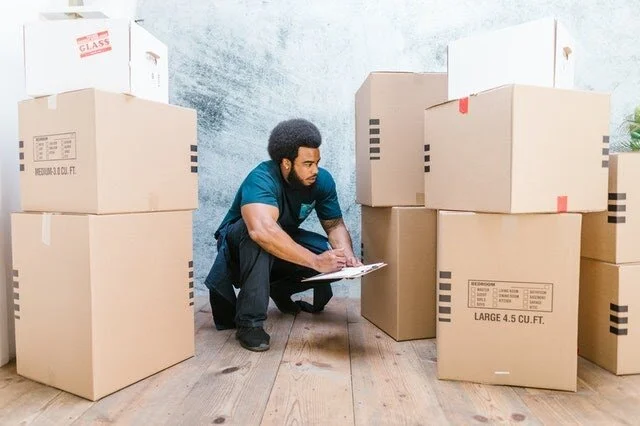A Helpful Timeline for Packing Up Your Home
Camelot’s Trusted Packing Timeline for Moving
Here at Camelot Moving & Storage, we are frequently asked questions about how long before moving should you start packing. Whether you’re relocating across the country or simply moving around the corner, following our recommended packing timeline for your Moving Day can help to ease fears and worries.
How long before moving should you start packing?
Packing your house for a move can seem very daunting, but with a well-designed and precise game plan, it can definitely be accomplished on time! Plan to start the task of packing items into boxes six to eight weeks in advance of your Moving Day, but as soon as possible, begin to declutter and downsize. If you opt to declutter while you’re packing your house for your move, add a few weeks to your packing timeline for moving since this will take longer. No matter when you downsize, it is a time- and money-saving step that you will be glad you took in advance of your move!
Need some help getting started? Download our free Declutter Guide!
No Time to Pack? No Worries!
Sometimes your packing timeline for moving can become suddenly compressed: perhaps your sale closed sooner than expected or you received a dream job offer in another state that starts right away! While exciting, a shortened timeline can be stressful as well. This is when hiring a professional moving and packing crew can help you prepare and pack your house for a move on time. Professional packing crews can pack most houses in one day. A full service moving company will be able to offer secure storage services as needed as well.
Ready to Start Packing Your House for a Move?
When you’re trying to figure out how long before moving you should start packing, it is essential to look at your belongings as an outside observer and then categorize them into three separate groups: Trash, To-Be-Sold/Donated, and Coming-With-You. Decreasing the number of personal belongings that come with you will give you an excellent, fresh start in your new home as well as lower your moving bill. As soon as you know you’re going to move, dive into the first category and start throwing away items that are broken or worn out. Then collect items you no longer want or use that can be donated, sold, or passed along to a friend or family member. Once you’re done with these two steps, you’ll be left with items you want to take with you. Congratulations! You’ve now reached the point where you can start packing your house for a move!
Step 1: First, Empty Those Storage Spaces
The first step in the packing timeline for moving begins six weeks ahead of Moving Day. Gradually pack up your storage spaces: the attic and basement, the garage, storage sheds, and closets. Carefully pack items and clearly label each box so you know where it should go in your new home.
Step 2: Empty Walls and Shelves
The second step in the packing timeline for moving takes place three to four weeks before Moving Day. Empty your walls and shelves of photos, paintings, knick-knacks, books, CDs, and other home décor. Fragile items such as wine glasses, artwork, and antiques should be packed separately.
Step 3: Start Boxing Up Infrequently Used Rooms
The third step in the packing timeline for moving launches two weeks before your move. Box up everything in rooms that are infrequently used, such as a guest room, game room, or exercise room. Infrequently used kitchen items and toiletries can also be packed.
Step 4: The Final Week
The final step in the packing timeline for moving takes place during the last week in your home. Pack bedrooms and bathrooms and the remaining items in your kitchen. Be sure to set aside a week’s worth of clothes and toiletries! Label boxes that you’ll want to unpack first so they’re easy to find.
Camelot Moving & Storage: Your Trusted Source for Moving and Packing
When you’re trying to figure out how long before moving you should start packing, contact Camelot Moving & Storage! With over 35 years of moving experience in the Santa Clarita Valley, Camelot can give you all the help you need. To learn more about us and discuss moving your home, visit our contact page, and we’ll connect you to our relocation team.



